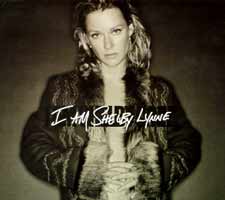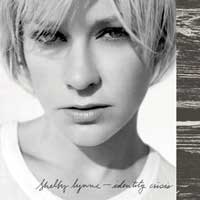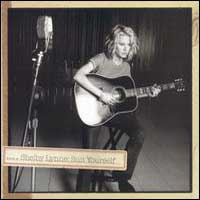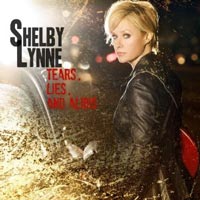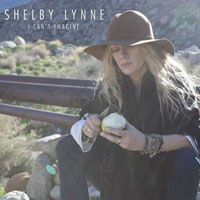Ihr kennt diese Tage: Alles ist grau, der Himmel weint, man friert – äußerlich wie innerlich, alles, aber auch alles scheint sich gegen einen verschworen zu haben. Und da kommt dieses eine Album daher, dieses eine, das sich in kürzester Zeit zum Lieblingsalbum emporschwingt, weil an ihm alles, aber auch alles stimmt.
Schon allein der Gedanke dieses Projektes, das eine meiner Lieblingssängerinnen, -Songschreiberin, -Interpretin seit Jahren in ihrem Herzen trägt, versprach die schönsten Möglichkeiten. Shelby Lynne singt Songs, die auf ewig mit einer der Königinnen des Soul verbunden sind: Dusty Springfield. Und hält man das Werk endlich in den vor Erwartung zitternden Händen, beginnt eine Reise in die Glückseligkeit. Eingeladen vom Cover, das mit einem zeitlos schönen Portrait-Foto Shelby in den Kontext der wenigen wirklichen Diven zu stellen weiß, betritt man eine 10-Songkollektion, die schon bald einen ewigen Platz im Herzen belegt. Songauswahl, Produktion, Arrangements, Instrumentierung – hier atmet alles einen Grad der Reife und Erfahrung, des tiefen Gefühls und der unaufdringlichen, aber allgegenwärtigen Kunst, der seinesgleichen sucht. Unter der Regie der Produzenten-Legende Phil Ramone (Barbra Streisand, Frank Sinatra), der als Tonmeister an Dusty’s Look Of Love beteiligt war, aufgenommen von Al Schmitt (Henri Mancini, Ray Charles, Steely Dan, Diana Krall), entwickeln die bislang fast zu bekannt scheinenden Songs ein neues, von liebevoller Dezenz und traumwandlerischer Stilsicherheit geprägtes Leben. In kleinen und kleinsten Besetzungen schaffen Rob Mathes (Keyboards), Gregg Field (Drums), Kevon Axt (E- und A-Bass) und Dean Parks (Gitarren) ein leise swingendes, unendlich köstlich-kostbares Instrumentalgeflecht, das Shelby’s Stimme aufs Feinste umgarnt und weich bettet, und sie sicher zu Gesangsdarbietungen geleitet, die selbst gemessen an ihren eigen hohen Standards einzigartig sind. Auch die Songauswahl wurde von dieser das Album jederzeit prägende Geschmackssicherheit geprägt: Nicht der Sohn eines Predigers ist es, der uns zum 100. Mal die Ohren füllt, es sind vorwiegend die Springfield-Songs, die nicht durch die Hitmaschine über Gebühr strapaziert wurden, die hier zu Lynne-Liedern werden. Selbst die übervertraut scheinenden Klassiker – The Look Of Love, Breakfast In Bed oder das so noch nie gehörte I Only Want To Be With You – werden so unendlich gefühlvoll neu belebt, dass man vor Glück weinen könnte. Und da überrascht es auch nicht mehr, dass das einzige Shelby-Original, Pretend, sich nahtlos in die Reihe der Kompositionen von Größen wie Randy Newman (I Don’t Want To Hear It Anymore), Tony Joe White (Willie And Laura Mae Jones), Bacharach & David (Look Of Love und Anyone Who Had A Heart) einfügt. Ein grenzenverneinendes Meisterwerk zwischen Soul, Jazz, Country und Blues, ein Licht am Ende des Tunnels, eine Platte für die Insel. Wenn man nur eine mitnehmen darf. (cpa)
(glitterhouse.de)
Shelby Lynne's first record in two-and-a-half years is a complete changeup. Lynne has followed her own restless, sometimes reckless, but always adventurous muse for most of her career — and especially since she released the seminal, I Am Shelby Lynne — a record she won a Grammy for as "Best New Artist" despite having made five full-lengths previously. On her last outing, Suit Yourself, released in May of 2005, the iconic and mercurial Lynne wrote or co-wrote ten of the twelve tunes on the CD. It was a loose, relaxed set that took no prisoners, moving through country, swamp rock, blues, and ballads. Just a Little Lovin' is a mirror image of sorts. Lynne wrote only one tune here — the entire record is an homage to the late Dusty Springfield. Nine of its ten cuts are inextricably linked with the legendary British vocalist. Lynne came under the sway of Springfield's work some years ago, and it was Barry Manilow, of all people, who suggested she cut a record like this one after a discussion of Springfield's work with Lynne.
Perhaps the first thing to make the listener aware of is that Lynne makes no attempt to sound like her subject. She is a singer with her own phrasing, manner of articulation, and sense of rhythm. Therefore, her choice of material is one that best represents the singer's diversity. Four cuts that appear here come from the Dusty in Memphis period, as well as the title track to The Look of Love and some of her mid-'60s hits from Great Britain that were not originally released in America, like the single version of the Rascals' "How Can I Be Sure." But all of these tracks, with the exception of the self-penned "Pretend," were graced by the voice of Springfield. This was a daunting task. And one Lynne took seriously. Recorded in the Capitol Records Studio with Frank Sinatra's legendary microphone as well as the equally legendary producer Phil Ramone, Lynne knew what to leave out as well as what to include. While most singers will automatically shoot for "Son of a Preacher Man," Lynne steers clear, knowing it's one of those tunes that should never be covered again. She does, however, tackle "Just a Little Lovin'," "Breakfast in Bed," "Willie and Laura Mae Jones," and "I Don't Want to Hear It Anymore," from the Dusty in Memphis set.
Lynne's versions of these songs are closer, steamier perhaps, and are deeply intimate versions. They're understated while keeping their sensual feel. Ramone understood the strength in Lynne's phrasing from the word go. The band is small, with guitarist Dean Parks, Rob Mathes on keyboards, drummer Gregg Field, and bassist Kevin Axt (who plays upright as well as electric). Curt Bisquera guests on drums on two tracks. The "Southern" in Lynne's delivery doesn't carry these songs into the stratosphere, but it does take them deep into the belly of the listener. The taut, easy sensuality in her singing adds a different kind of depth and dimension to these tunes. When Lynne gets to the in-the-pocket feel of "Breakfast in Bed," written by Donnie Fritts and the late, great Eddie Hinton, she comes toward the tune's subject not so much with innocent empathy and tenderness as with a much rawer acknowledgement of what's needed, and without the trace of the vulnerable in Springfield's song. It's simply awesome. The electric piano and Parks' guitar playing give the singer plenty of room to move into that lyric and pull it out. "Willie and Laura Mae Jones," by Tony Joe White (who appeared on Suit Yourself), has got that rough, swampy, acoustic earthiness in it, and Lynne adds her guitar to the sparse, slow growl in Ramone's and engineer Al Schmitt's mix. This tune about interracial love was written by White and recorded by Springfield when the subject was taboo in America. Springfield made a song like this palatable, with that slight British accent and her incredible phrasing and delivery: if she was singing it, it had to be innocent, right? Lynne gets at White's lyric with all the blues and rumbling toughness without having to push anything into the red. The way the song fades before the tale ends is a wonderful touch.
Randy Newman's "I Don't Want to Hear It Anymore" carries inside it the trace of both the South and Lynne's adopted West Coast home. She can tell this ambivalent, heartbreaking tale as if it were her own, all the while uncannily recalling Springfield's empathy and grace. Other signature pieces of Springfield's, such as "I Only Want to Be with You," are treated very differently. The poppy, bubbly Springfield version (she was in her 20s when she cut it) is slower, and has the feeling of new love from a protagonist who never expected it. There's genuine surprise in it, as well as surrender, as if this conversation is really one the singer is having in the mirror. The piano and Parks' lush, acoustic guitar lines with their jazz feel entwine perfectly. It's sparse and elegant, and Lynne's got just the hint of vulnerability in the slightly smoky grain of her voice. "The Look of Love" is executed wonderfully here. It's a daunting song for anyone, and Springfield's version has remained unchallenged for more than 40 years. Lynne doesn't challenge it at all. She doesn't overdo it, but instead offers tribute by trying to read this song in a very different way. In her own way, which she acknowledges fully in the reading, she has been deeply influenced by Springfield. She lets the instruments lead along her, holding herself back and letting the emotion come through the words as they occur to her. It's not as sultry as Springfield's, but feels very honest, truthful. There's a boldness in it that has more to do with an embrace of being overwhelmed by anticipation. The other Bacharach/David cut here, "Anyone Who Had a Heart," has to be heard to appreciate the uniqueness of Lynne's interpretation. It's not upside down, but more a tracing of Springfield's version, like a mirror image, and the brushed snares, twinned melody lines between guitar and piano, and that solidly paced bassline turn this waltz into a haunted love song of the highest order.
"How Can I Be Sure" is simply startling: Lynne sings it accompanied only by Parks on acoustic guitar. No swirling strings, no squeeze box, no popping snares. It's radical, but it's a fitting closer to this fine set. Lynne's own entry here is a very classy if desperate pop song; it's treated especially sparsely. Lynne's channeling Springfield on it, because there is that pronounced vulnerability in this song that the late singer put into everything she did, but it's radical coming from Lynne, who lays it on the line — usually with a swagger. "Just a Little Lovin'" is perhaps the finest tribute in song Springfield has ever received, at least on tape. That such a fine singer and songwriter has interpreted her in such an empathic, respectful, canny, and sophisticated manner is not only fitting, but celebratory. As for this being a Shelby Lynne record, its quality and confidence is unassailable. Ramone's care with this artist is truly admirable (everyone knew she could sing and write, but Ramone, who has worked with most of the greats, has helped to present her in a completely different light — hopefully for a far greater audience); but more than this, the disc further adds to the complex, multi-dimensional persona Lynne has displayed on her albums, yet at the same time creates one of the most accessible, direct, and approachable offerings to come out of the adult pop market in years. The only comparison one can make between her and Springfield is one of approach. The ambition Lynne displays is simply to do the songs her heroine is known for, giving them proper justice. For anyone who thinks that Madeleine Peyroux, Tierney Sutton, or Norah Jones are the true high-water marks for female singers, think again. Lynne's diversity, confidence, and sheer ability to interpret and sing virtually anything that comes her way as if it were her own is the standard to aspire to, let alone beat.
(by Thom Jurek, All Music Guide)
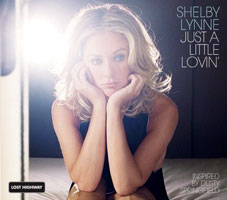 #5 in Jahresliste
#5 in Jahresliste  Plattentipp
Plattentipp 







